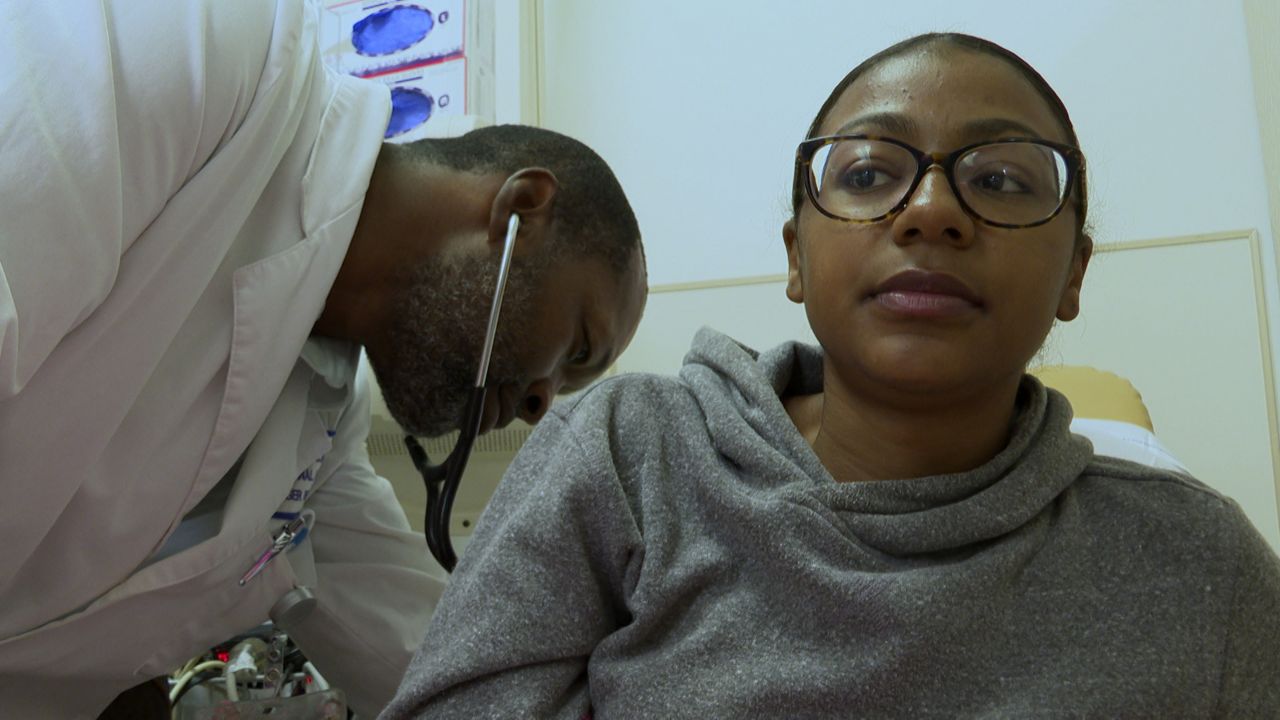INGLEWOOD, Calif. – You wouldn’t know by looking at Alexis Wardlow that anything was wrong, but that’s on the outside. Inside, her red blood cells look like crescent moons.
"Normally, I’m here about once every two weeks. If I feel like I’m in crisis, then I’m here every week," she said.
Wardlow is a patient at Kaiser Permanente’s Sickle Cell Center of Excellence in Inglewood. It's one of only two sickle cell centers that provide adult care in Los Angeles, and it treats around 700 patients throughout Southern California.
"You experience a range of symptoms going from being overly tired or lethargic to having pain, possibly being nauseous, and pain can occur in any area where the blood flows," Wardlow said.
Because the cells are shaped like sickles, they often stick to each other, which can restrict blood flow and cause intense pain.
"It’s between like a seven and 10," Wardlow said. "It feels like someone is kind of stabbing me in the hip bone right now, and then maybe it’ll go away and then it’ll comeback or it’s just constant."
A constant part of her life since birth, she says she’s done her best not to let it define her or stop her from reaching her goals.
"I’m working on my psychology degree in behavioral health science, so that one is the tough one that I’m working on, but it’s worth it," Wardlow said.
On top of that, she also teaches classes for the Los Angeles Recreation and Parks Department, works for a local sickle cell group, and is trying to start her own non-profit.
"It’s like that’s like an everyday thing for me and for me to let my illness come in between that, that would just break my whole system down," Wardlow said.
Despite taking at least six medications, plus vitamins just to treat pain and other symptoms, Wardlow wants others to know sickle cell doesn’t have to overrun your life.
"You can travel. You can go get a degree. You can go and start your own business and that it’ll work out for you. You just gotta push, and you gotta prepare to be able to do that," she said.
But a common challenge for adult sickle cell patients outside the center is having to convince doctors they’re not simply seeking drugs.
"Mentally, to deal with being in constant pain or always having to explain to a doctor or a nurse how you’re feeling and always having to prove that you’re in pain," she said.
Dr. Osbourne Blake heads up Kaiser's Sickle Cell program. He’s been with the health care provider for the past 20 years and says the future looks promising.
"Within the next five years, we’ll be able to fully start using gene therapy," Blake said.
He says that potentially means fewer side effects, a better quality of life, and perhaps a longer lifespan, Right now, he says the sickle cell patients can live into their 60s and beyond.
While Sickle Cell Disease is more common than Cystic Fibrosis, some argue there is less sickle cell research because it primarily affects communities of color, especially the African American community — one in 365 of them in the U.S., but doctors say it's also relatively common among Hispanics and those of Middle Eastern or Mediterranean descent.
Wardlow says it's frustrating because Sickle Cell Disease has been around for more than 100 years.
"Once people realize that and they understand how it can affect themselves, their families and their children, they’ll be more aware, and I think they’ll be more willing to help find a cure."
Let Inside the Issues know your thoughts and watch Monday through Friday at 8 and 11 p.m. on Spectrum News 1.



